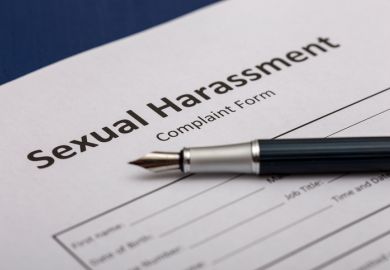Unfamiliarity with Australian norms, exacerbated by a reluctance to speak out, have made international students a target of sexual predators at the country’s capital city university.
A new report has concluded that overseas students at the University of Canberra are three times more likely to be sexually assaulted than their domestic peers. And they are almost a third less likely to know about the university’s sexual assault policy.
The problems are compounded by “the complexity of the complaints system” and “a lack of cultural awareness within that system and by those taking complaints”, according to the report by former Australian sex discrimination commissioner Elizabeth Broderick.
The “shame they would feel if their families were aware” contributes to their reluctance to report incidents, the report says. “In addition, international students…fear that a complaint would negatively impact on their place at the university [and] their visa status.”
The study combined new research with institutional-level data from last year’s Human Rights Commission report on sexual offences at Australian campuses. It found that 2.4 per cent of the university’s international students had reported being sexually assaulted on campus, or while travelling to or from the university, between 2015 and 2016.
This compared with 0.8 per cent of domestic students. Foreigners comprise almost one-quarter of the university’s 17,000-odd student body.
The report says that staff in the university’s on-campus accommodation are coached to be first responders, but they do not receive cultural awareness training attuned to the needs of foreign students.
And while the university’s international student support service has traditionally been the key contact point for foreigners in need of help, this role has increasingly fallen to general support staff who do not receive guidance in cultural awareness or sexual assault disclosure.
The report urges the university to develop a “responsive” support system for international students, with an immediate focus on making information more accessible and providing cultural awareness training to all front-line support staff.
Medium-term priorities include giving international students information before they arrive in Australia, and developing a peer support system where they conduct regular “check-ins” with their counterparts and refer them for support if they need it.
The recommendations are among dozens outlined in the report, which was released on 8 October. Canberra chancellor Tom Calma and vice-chancellor Deep Saini committed to implementing all 39 of them.
“The Broderick review acknowledged the university’s zero-tolerance approach to sexual harassment and sexual assault, and referenced its efforts in making the campus safe and respectful,” they said in a joint statement. “The university acknowledges, however, that there is more to be done.”
The student representative council commended the university for seeking external advice, but stressed the administration’s responsibility to ensure that students knew about reporting mechanisms and support resources.
“Whilst we are disappointed that a reporting tool has not existed in the past, we are hopeful that this is rectified as a matter of priority,” the council said in a statement.
Register to continue
Why register?
- Registration is free and only takes a moment
- Once registered, you can read 3 articles a month
- Sign up for our newsletter
Subscribe
Or subscribe for unlimited access to:
- Unlimited access to news, views, insights & reviews
- Digital editions
- Digital access to THE’s university and college rankings analysis
Already registered or a current subscriber?








